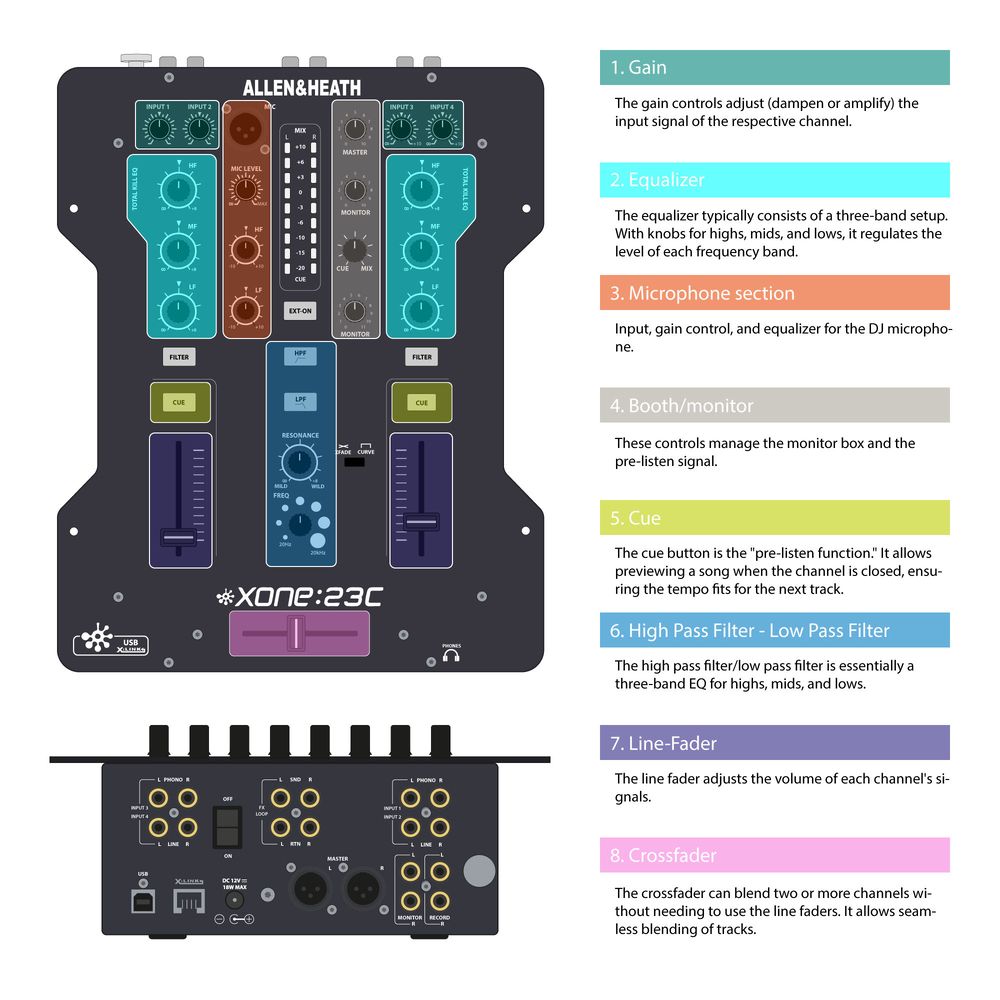5. Special Case: DJ Mixers
DJ mixers are essentially regular mixers tailored to the needs of DJs. Therefore, it's important to consider your personal needs when purchasing one.
One of the first things you'll notice is the number of channels. Since DJs typically use 2 turntables, and at most, a microphone input, most DJ mixers work well with one mono channel and two stereo channels. The master section is also streamlined. Connections for effects are usually not necessary; what's important is the headphone jack.
A distinctive feature of DJ mixers is the crossfader, which is usually placed horizontally between the two channels. To create perfect blends from one turntable to another, you simply slide the crossfader from one channel (A) to the other (B). Some models allow you to adjust the behavior of the crossfader. Since faders, especially in DJ mixers, undergo heavy use, you might want to consider mixers with externally replaceable faders (primarily for crossfaders).
Some DJ mixers offer additional features such as a beat counter, various selectable effect filters (kill switches), or effects tailored specifically for DJs.
DJ mixers also differ from their counterparts in terms of their connection panels. They typically have RCA jacks for connecting to turntables, with headphone jacks being the only place you'll find quarter-inch jacks. If available, a single XLR input signifies the presence of a microphone input. Since turntables and CD players are the typical playback devices, the input amplifier should offer a choice between Phono and Line.
Regarding outputs: no manufacturer has standardized the connector type, so it's a good idea to check the back when making a purchase so you'll have the appropriate adapter on hand. However, two outputs (Master + Aux) should be available for connecting amplifiers and other equipment.



